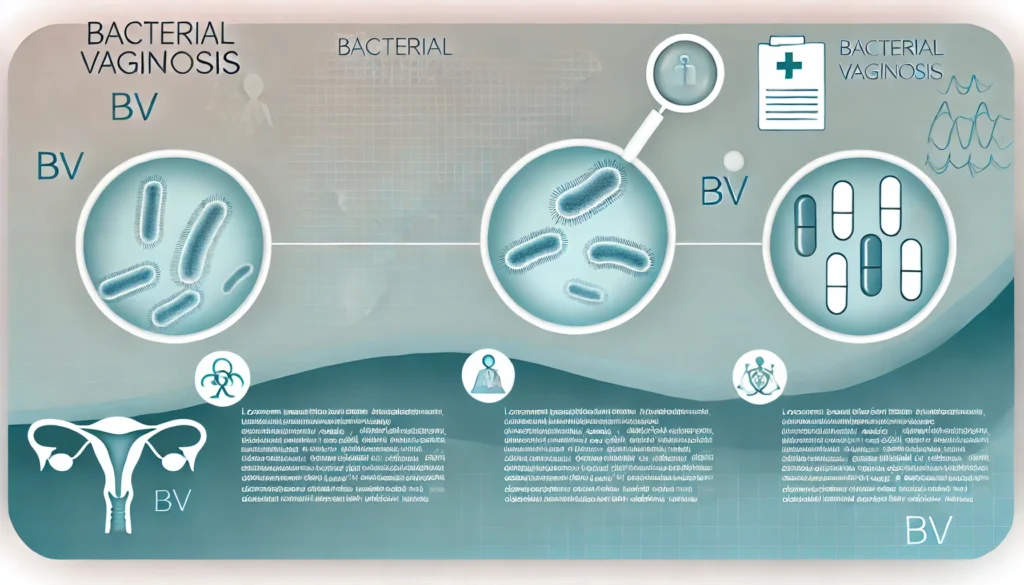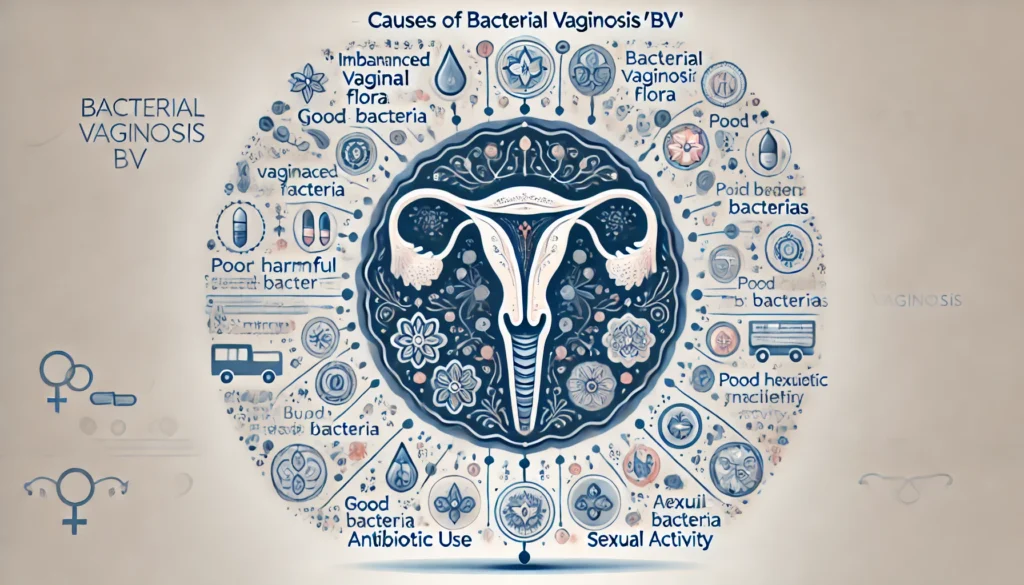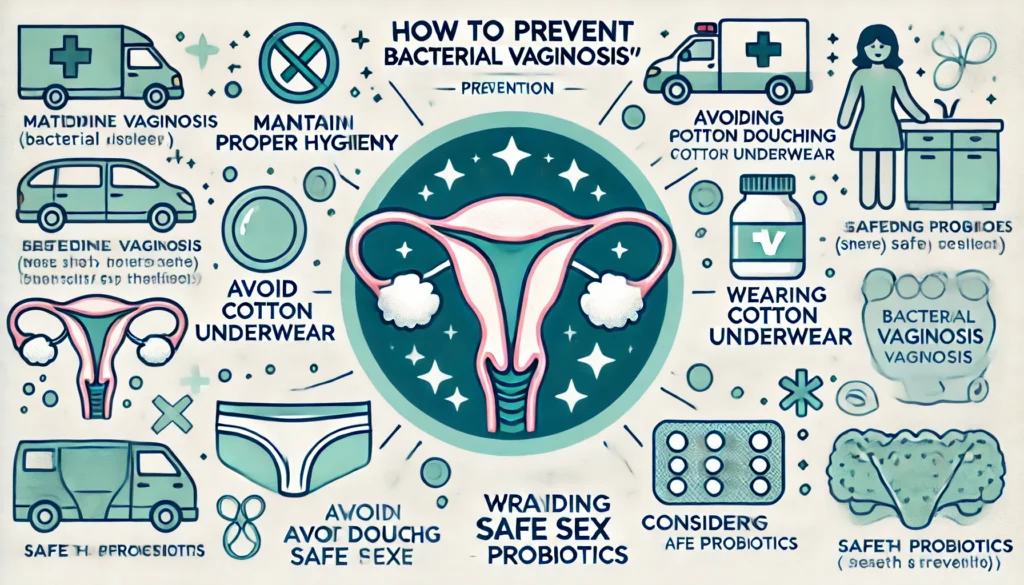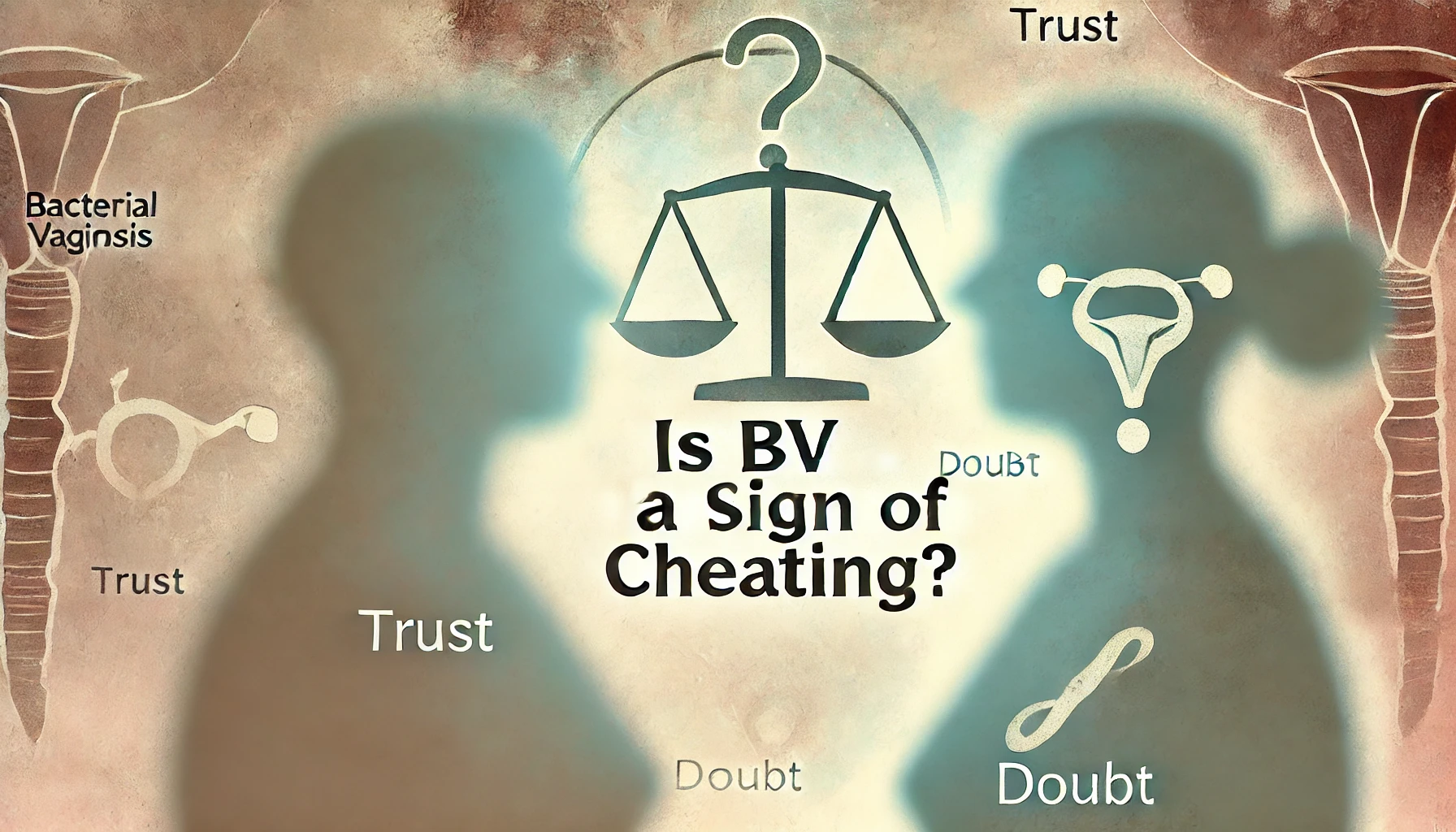Bacterial vaginosis (BV) is a common vaginal condition caused by an imbalance of natural bacteria. While it’s not considered a sexually transmitted infection (STI), BV often raises concerns and questions in relationships, especially regarding infidelity. One of the most common questions asked is: Is BV a sign of cheating? This misconception can lead to unnecessary worries and tension between partners. Understanding what BV is, its causes, symptoms, and treatment options is crucial for clearing up confusion. In this article, we’ll explore whether BV is linked to sexual activity, what it means for your health, and if it can truly be a sign of infidelity. With detailed insights into BV’s symptoms, causes, and risk factors, we’ll also address common misconceptions and frequently asked questions about this condition. Ultimately, the goal is to provide clarity and peace of mind around the question: Is BV a sign of cheating?
Understanding Bacterial Vaginosis (BV)

Bacterial vaginosis is a bacterial infection that occurs when there’s an imbalance of the natural bacteria in the vagina. The vagina is home to a variety of bacteria, but BV occurs when harmful bacteria overgrow, disrupting the natural pH balance. The condition is relatively common and can be uncomfortable but is generally not serious if treated promptly.
BV vs. Yeast Infection: Spotting the Differences
Many people confuse BV with yeast infections, as both conditions can cause similar symptoms. However, BV and yeast infections are caused by different organisms and have distinct characteristics.
- BV is caused by an overgrowth of harmful bacteria in the vagina, leading to symptoms like a fishy odor, thin grayish discharge, and vaginal irritation.
- Yeast infections, on the other hand, are caused by an overgrowth of Candida (a type of fungus) and typically result in thick, white discharge and itching.
Understanding the difference between these two conditions is important for accurate diagnosis and treatment.
Is BV a Sexually Transmitted Disease (STD)?
One of the common misconceptions about BV is that it’s an STD. However, bacterial vaginosis is not classified as a sexually transmitted infection (STI). It can occur in women who have never had sex, though it’s more common among sexually active individuals. The condition is triggered by an imbalance of bacteria, which may or may not be influenced by sexual activity. This can be confusing for those wondering Is BV a sign of cheating?, but BV itself is not considered an indicator of infidelity.
How BV Is Linked to Sexual Activity
While BV isn’t technically an STI, sexual activity, especially with new or multiple partners, can increase the risk of developing the condition. This can sometimes lead to suspicions in relationships, but it’s important to note that BV can occur for a variety of reasons unrelated to infidelity.
Recognizing Bacterial Vaginosis: Symptoms
The symptoms of BV can vary, but some of the most common signs include:
- A fishy vaginal odor, especially after intercourse
- Thin, gray, or white vaginal discharge
- Burning during urination
- Vaginal irritation or discomfort
If you’re experiencing any of these symptoms, it’s important to consult a healthcare professional for a proper diagnosis.
Uncovering the Causes of Bacterial Vaginosis

Bacterial vaginosis occurs when there’s a disruption in the balance of the bacteria that naturally reside in the vagina. There are several factors that can contribute to this imbalance, including:
- Sexual Activity: Having a new sexual partner or multiple partners can alter the vaginal flora.
- Douching: Douching can disrupt the natural balance of bacteria in the vagina.
- Hormonal Changes: Pregnancy, menstruation, or birth control can affect vaginal bacteria.
- Certain Soaps or Detergents: Using harsh soaps or scented products can disturb the natural balance.
While sexual activity can increase the risk of BV, it’s not exclusive to sexually active individuals, further reinforcing that BV is not necessarily a sign of cheating.
Risk Factors for Bacterial Vaginosis
Several factors increase the risk of developing bacterial vaginosis:
- Multiple or new sexual partners
- Smoking
- Frequent douching
- Natural hormonal fluctuations
- IUD contraception (though rare, some IUDs can increase the risk)
It’s important to understand that these risk factors can trigger BV in any woman, not just those who are sexually active or in relationships where infidelity is suspected.
Diagnosing Bacterial Vaginosis
If you’re experiencing symptoms of BV, it’s important to get a proper diagnosis from a healthcare provider. Diagnosis typically involves:
- A pelvic exam
- A sample of vaginal discharge for lab analysis to check for bacterial imbalance
- A pH test (BV causes a higher vaginal pH level)
Once diagnosed, your healthcare provider can recommend the appropriate treatment plan.
Treating Bacterial Vaginosis
Thankfully, BV is relatively easy to treat. The most common treatment options include:
- Antibiotics: These can be taken orally or applied as a cream or gel to the vagina.
- Probiotics: In some cases, taking probiotics to restore the natural balance of bacteria in the vagina can be effective.
It’s crucial to complete the full course of antibiotics prescribed by your doctor, even if symptoms improve before the medication is finished. Recurrence of BV is common if treatment is not completed or properly followed.
Natural Remedies for Bacterial Vaginosis
In addition to medical treatments, some home remedies may help alleviate symptoms or prevent future occurrences. These include:
- Probiotic supplements or foods like yogurt or kefir
- Apple cider vinegar baths, which may help restore the natural pH balance
- Garlic supplements, known for their antibacterial properties
- Tea tree oil, which has natural antimicrobial properties (ensure it is properly diluted)
However, it’s always a good idea to consult a healthcare provider before trying home remedies to ensure they’re safe and effective for your specific situation.
Potential Complications of Untreated Bacterial Vaginosis
While BV is generally not a serious condition, leaving it untreated can lead to complications, particularly for pregnant women. Potential complications include:
- Increased risk of STIs like HIV, chlamydia, and gonorrhea
- Preterm birth or low birth weight in pregnant women
- Pelvic inflammatory disease (PID)
For these reasons, it’s important to seek treatment promptly if you suspect you have BV.
How to Prevent Bacterial Vaginosis

While it may not always be possible to prevent BV, there are several steps you can take to reduce your risk:
- Avoid douching: Douching can upset the natural balance of bacteria in the vagina.
- Practice safe sex: Using condoms and limiting sexual partners can help reduce the risk of BV.
- Opt for unscented products: Avoid using scented soaps, bubble baths, or feminine sprays that can disrupt the vaginal pH.
- Maintain proper hygiene: Regular washing with water and mild soap can help keep the vaginal area healthy.
- Take probiotics: Regular intake of probiotics may help balance the vaginal flora.
Implementing these practices can help reduce the frequency of BV and improve overall vaginal health.
Is BV a Sign of Cheating?
So, is BV a sign of cheating? The answer is no, not necessarily. While sexual activity can influence the occurrence of BV, it is not an STI and does not directly indicate infidelity. Many factors, including lifestyle choices, hormonal changes, and even hygiene habits, can contribute to the condition. It’s important to communicate openly with your partner and seek medical advice to address the underlying causes of BV rather than jumping to conclusions.
Final Thoughts: Conclusion
Bacterial vaginosis is a common condition that many women experience, but it’s not a clear sign of cheating or infidelity. Factors such as sexual activity, lifestyle choices, and even the use of certain hygiene products can all influence the occurrence of BV. If you’re experiencing symptoms of bacterial vaginosis, it’s essential to seek professional medical advice to diagnose and treat the condition properly. Open communication, proper treatment, and understanding the causes and risk factors of BV can help ease concerns about its association with cheating.
In conclusion, while Is BV a sign of cheating? is a valid question due to the condition’s links with sexual activity, the reality is that BV can arise from a wide range of factors. Educating yourself about its causes, symptoms, and treatments is key to maintaining your vaginal health and avoiding unnecessary worries about infidelity.
Frequently Asked Questions
Why Does My Boyfriend Keep Giving Me BV?
It’s a common misconception that a partner “gives” someone BV. BV is not transmitted from person to person like an STI, but it can be influenced by sexual activity. If your partner’s body chemistry disrupts the balance of bacteria in your vagina, it could contribute to recurrent BV. However, this doesn’t mean your friendship with boyfriend is causing the infection directly or that infidelity is involved.
Can You Get BV in a Monogamous Relationship?
Yes, you can develop BV even in a monogamous relationship. BV is caused by an imbalance of vaginal bacteria, which can occur due to factors like hormonal changes, hygiene practices, and even sexual activity, regardless of how long you’ve been with the same partner.
Why Is My Boyfriend Contributing to My BV?
Although BV isn’t something your partner is “giving” you, sex can sometimes alter the bacterial balance in your vagina, especially if your partner has a different body chemistry. The change in pH levels due to intercourse can create an environment where harmful bacteria thrive, leading to BV.
Can You Get BV from a Dirty Partner?
While hygiene plays a role in overall health, you don’t necessarily get BV from a “dirty” partner. However, certain hygiene habits, such as poor genital hygiene or failure to wash hands before sex, can introduce bacteria that may disrupt your vaginal flora. It’s more about maintaining healthy habits than your partner’s cleanliness.
Can You Get a Bacterial Infection from Your Partner Cheating?
Though BV is not a sign of cheating, some bacterial infections, like STIs, can be transmitted through infidelity. BV itself, however, is caused by a bacterial imbalance and is not classified as an STI. If you’re concerned about infidelity, it’s best to have an open conversation with your partner and consult with a healthcare provider for testing and diagnosis.
Is BV a Sign of Multiple Partners?
Having multiple sexual partners can increase your risk of BV, but it is not definitive proof of infidelity or multiple partners. The condition arises from an imbalance in vaginal bacteria, which can be influenced by several factors, including sexual activity, douching, or even changes in your menstrual cycle.
Can Bacterial Vaginosis Go Away on Its Own?
In some cases, BV may resolve without treatment, especially if it’s mild. However, it’s always a good idea to consult a healthcare provider for treatment, as untreated BV can lead to complications, including an increased risk of STIs and pelvic inflammatory disease (PID). Antibiotics are typically recommended to ensure the infection is fully treated.
Is Bacterial Vaginosis Contagious?
No, BV is not contagious. It cannot be passed between partners the way a sexually transmitted infection can. Instead, it results from a bacterial imbalance in the vagina, which may be influenced by sexual activity but not caused by direct transmission from one person to another.
What Do BV Sores Look Like?
BV itself does not typically cause sores. However, if you’re experiencing sores in the vaginal area, this may be a sign of another condition, such as an STI, and should be evaluated by a healthcare professional. BV symptoms usually involve discharge, odor, and discomfort but do not include sores or blisters.
Why Does My Boyfriend Keep Contributing to My BV?
Recurrent BV can sometimes be linked to sexual activity due to the way sex alters the natural bacterial balance in the vagina. It’s not that your boyfriend is “giving” you BV, but the bacteria from his body or changes to your pH levels during sex might be contributing to the condition. Communication and following proper treatment plans can help manage recurrent BV issues.
By addressing these frequently asked questions, we can dispel myths and misunderstandings surrounding bacterial vaginosis and its connection to relationships, helping to provide clarity and peace of mind.




